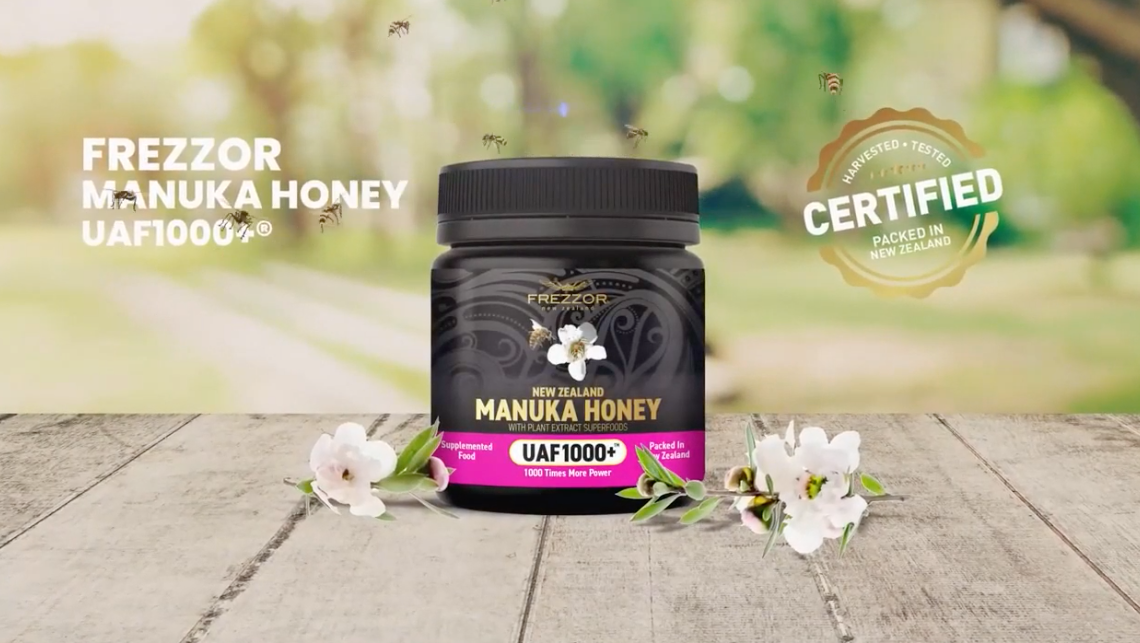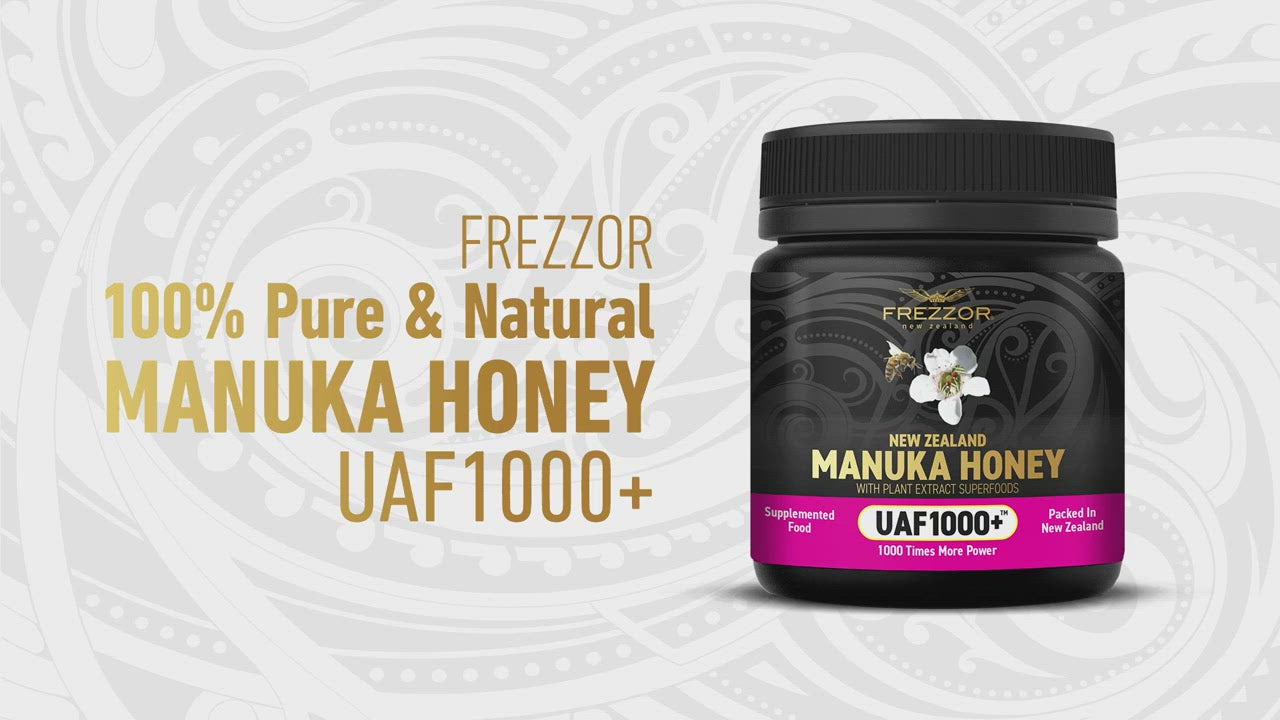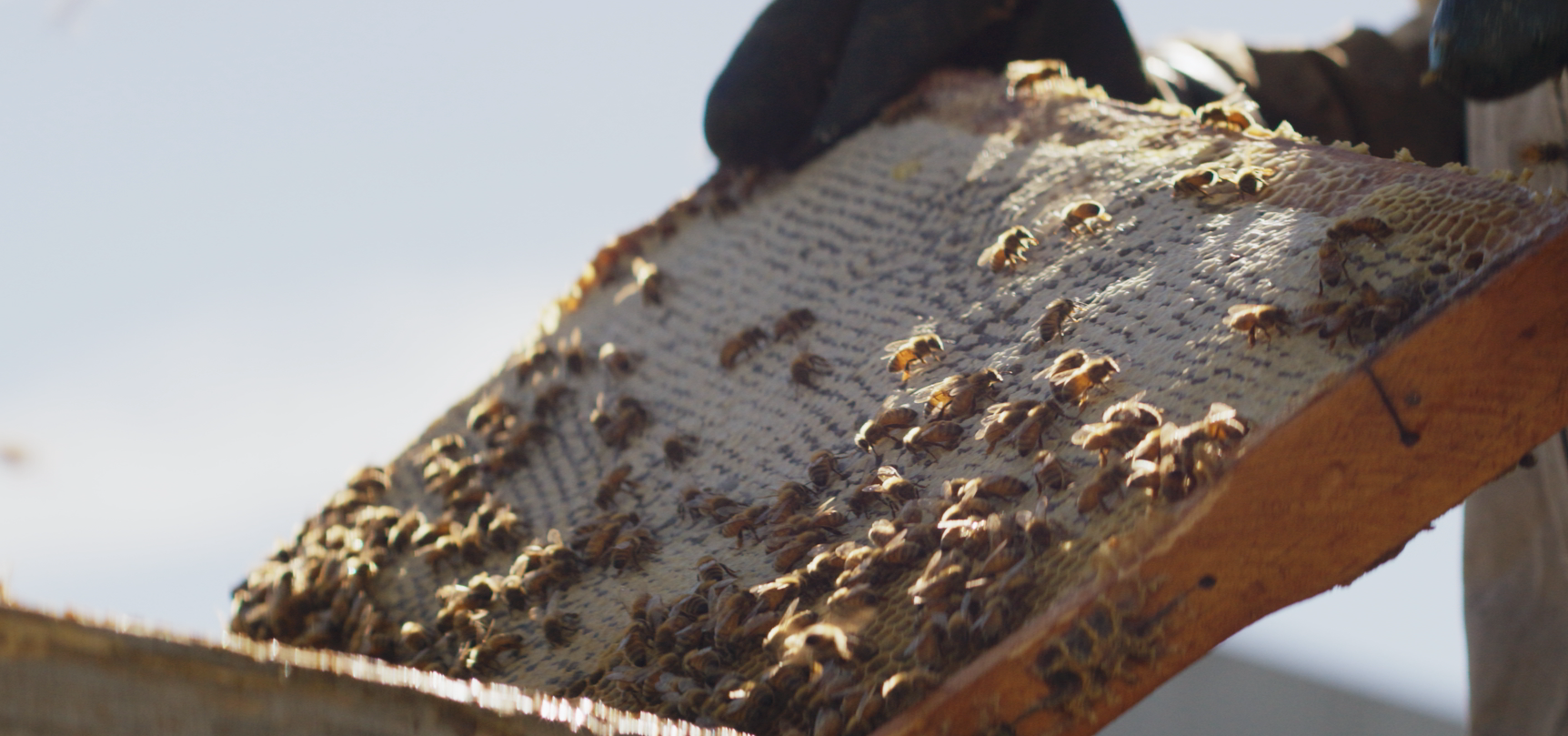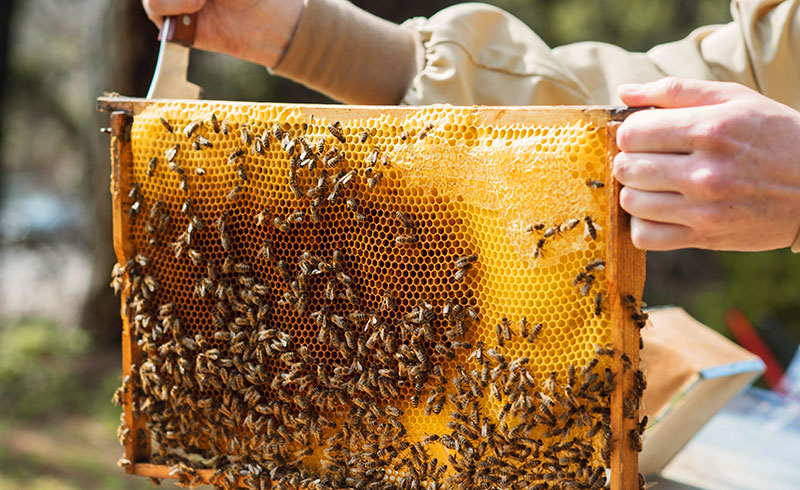
Sustainable
Sustainability is very important to us and therefore we are committed to protect and preserve our beautiful clean green New Zealand. Our Active New Zealand Manuka Honey is 100% sustainable.
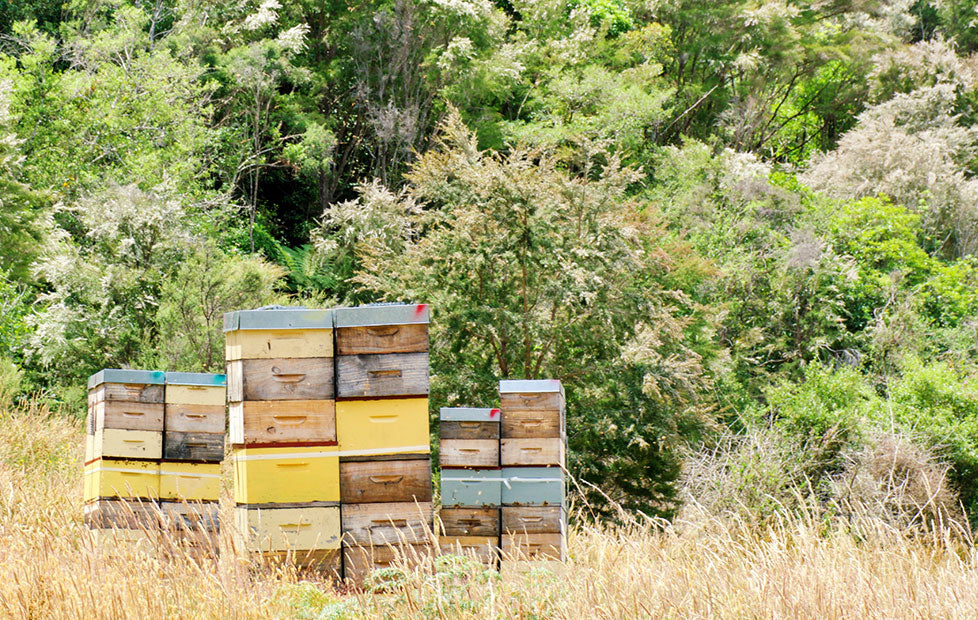
Traceability
All our New Zealand Manuka honey is collected from beekeepers who harvest honey exclusively for FREZZOR. We not only track the individual hives that our honey comes from but we also track the geolocations of native bush that our hives are established in.
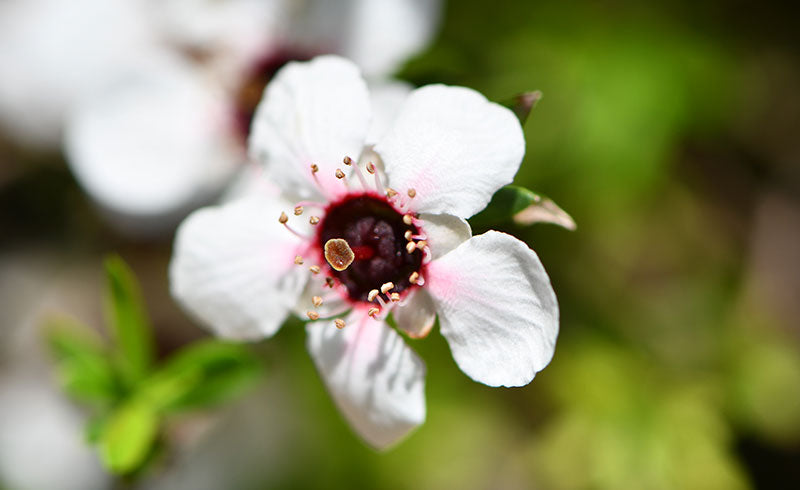
FREZZOR Manuka Honey UAF1000+® from New Zealand's remote pollution-free wild native Manuka flower is globally renowned for its superior health benefits.
FREZZOR proprietary formula of 7 super-potent plant polyphenols and minerals blended with NZ Manuka Honey to create UAF1000+® “Ultimate Antioxidant Factor 1000+” supports digestive health, stomach ailments, immune system, respiratory system, bacterial balance, relief of coughs and sore throats.
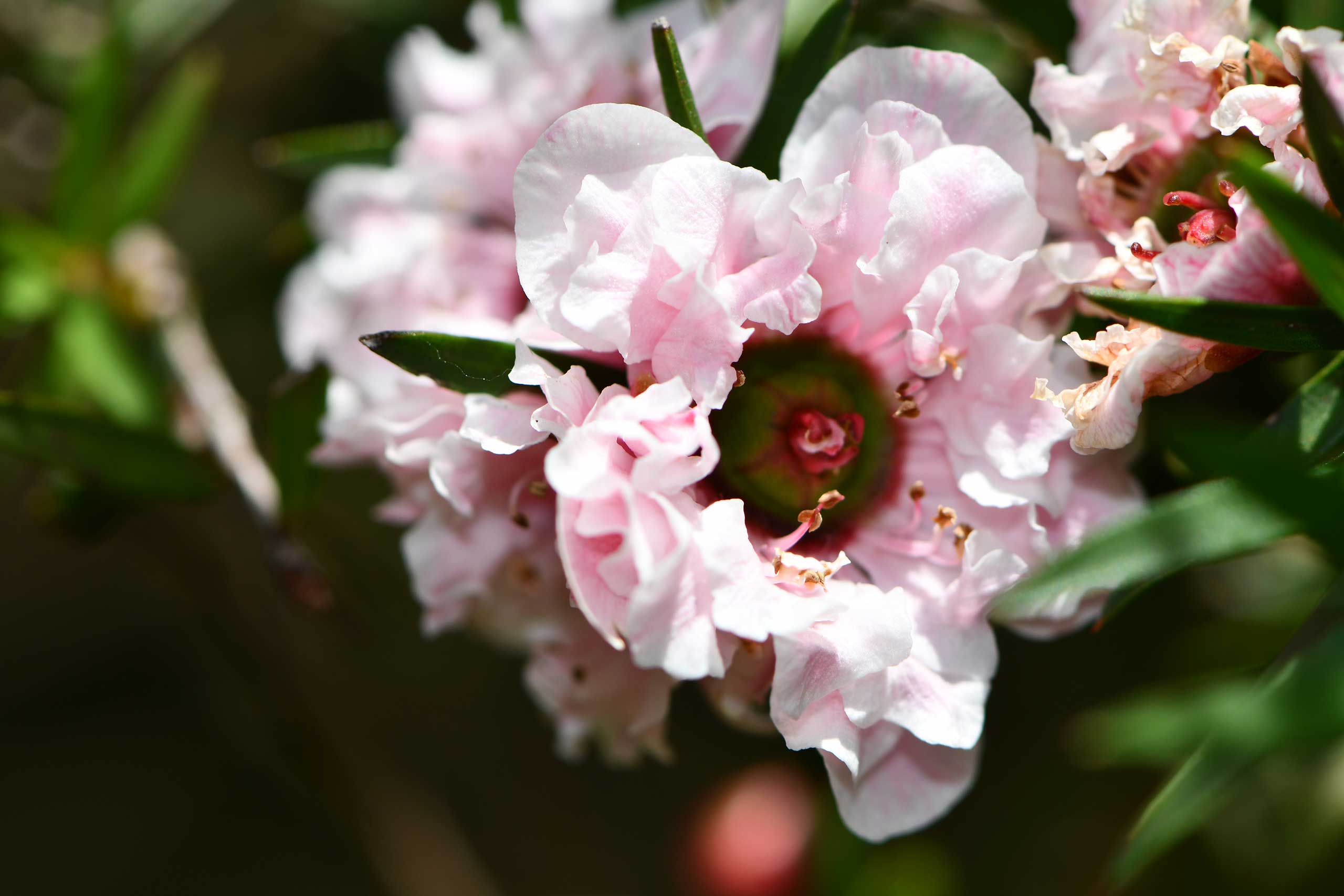
Manuka honey has received a tremendous amount of recognition, and now is much more popular than most other types of honey. Many sources list the benefits of this type of honey as being that it is antibacterial, antiviral, antifungal, anti-inflammatory, anti-allergenic and immune stimulating. It is even being used to treat wounds and cuts. These are all correct, but they are only some of the many benefits that manuka honey has.
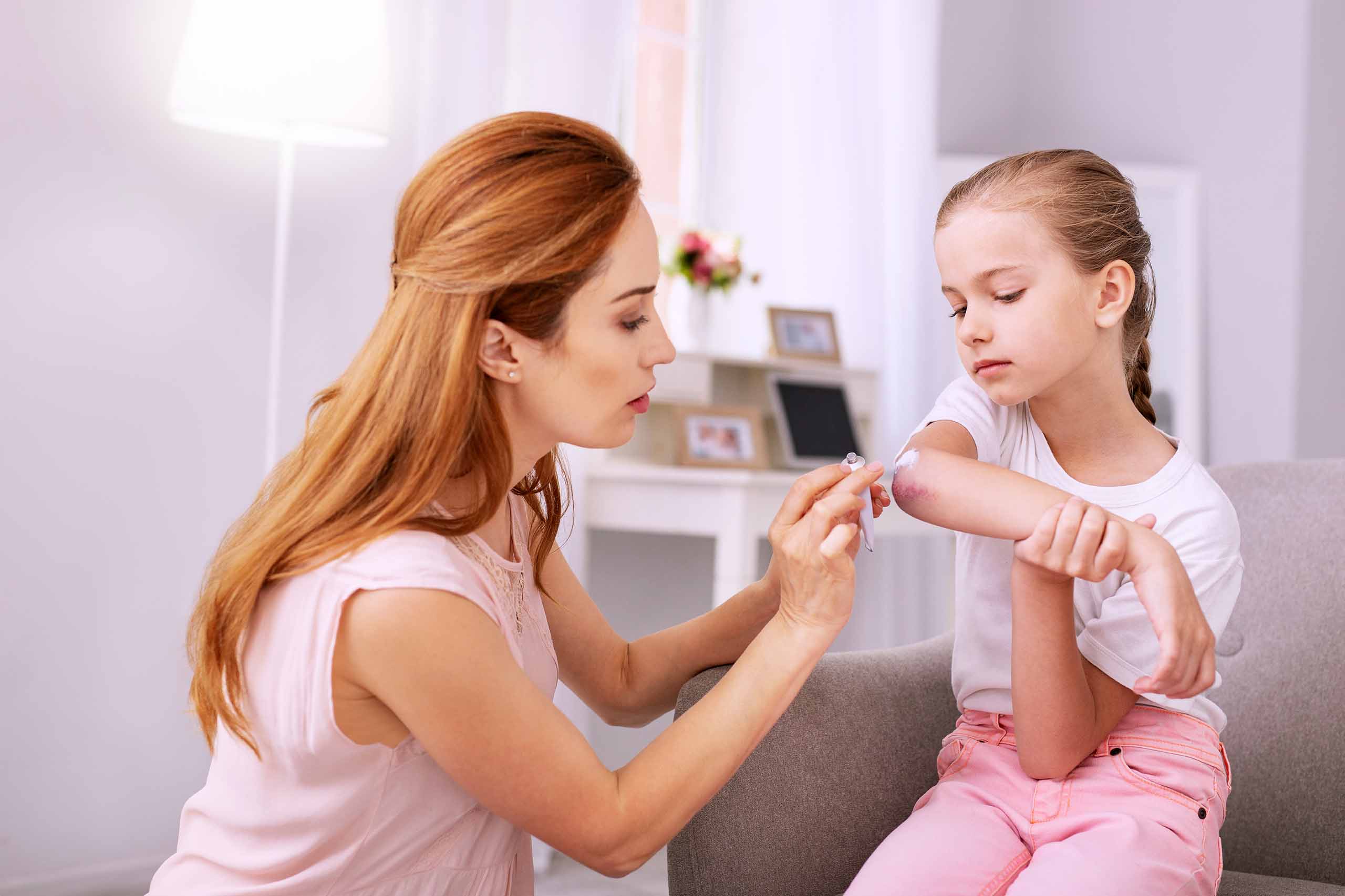
Manuka honey has been used in hospitals. They use it to treat wounds and cuts that have become resistant to healing and subject to frequent re-infection. It is also used for any types of skin issues such as eczema and psoriasis. This type of honey's antibacterial properties is very effective in treating these conditions because it can be applied with the risk of someone being resistant to antibiotic treatment.

Born in the Wilds of New Zealand
Our Manuka bees forage in remote, untouched valleys far from roads, farms, and pollution. This is where FREZZOR Manuka Honey UAF1000+® begins — pure, raw, and naturally powerful.
FAQ
FREZZOR Manuka Honey UAF1000+®
What is Manuka?
The Manuka bush grows mainly in the remote mountainous regions of New Zealand. The manuka plant belongs to the myrtle family and is rich in essential oils. The leaves and bark of this tea tree species have been used for centuries by the Maori, the indigenous people of New Zealand, as a remedy to soothe wounds and gastrointestinal diseases. The fact that valuable honey could also be produced from the flowers was discovered long afterward, namely when honey bees were settled in New Zealand in 1840. Until then, only wild bees were native to New Zealand. The flower nectar of the Manuka bush is remarkable and now the rest of the world has also recognized the amazing effect of Manuka honey against bacteria, viruses, and fungi.
How is Manuka honey extracted?
Manuka honey is extracted by placing hives close to manuka bushes, which are in full bloom, in the pristine wilderness of New Zealand. Some of these regions can only be reached by helicopter, so the hives must be flown into these pristine areas. The bees then fly to the flowers in the surrounding area. This is done in order to obtain the purest possible "monofloral" Manuka honey, as bees generally harvest all the flowers available to them within a certain radius.
What is the difference between Manuka Honey and other local honeys?
Manuka honey is a very valuable honey because it contains many times higher levels of methylglyoxal than domestic flower honey. Methylglyoxal has the property to act antibacterial and against multi-resistant germs. In European native honeys, about five milligrams of methylglyoxal per kilogram are found, but in the honey of the Manuka tea tree, up to 800 milligrams.
What makes Manuka honey so expensive?
There are several reasons for this and it is not only due to the extraordinary composition of Manuka honey. As described above, the Manuka bush grows exclusively in New Zealand and a few parts of Australia. This, therefore, needs a certain soil and also the right climatic conditions to bloom then only 2-6 weeks a year. This means that the bees can only harvest the Manuka nectar within these 2-6 weeks. In order to produce real Manuka honey, it is important that the bees fly as exclusively as possible to the Manuka bushes, which in turn requires that the hives be placed in remote regions with the highest possible population of Manuka bushes, often even with helicopters. In summary, the following factors account for the price of this rarity: - higher levels of methylglyoxal than domestic honey, - the conditions of harvesting the Manuka honey are more difficult, - the production volume remains the same with increasing demand, - transport costs incurred.
What are the properties of FREZZOR Manuka honey?
Generally, Manuka Honey is creamy in consistency, but FREZZOR Manuka Honey is creamy to firm due to the addition of the plant extracts. Manuka honey also tends to be darker in color. FREZZOR Manuka Honey has a rosewood tone due to the addition of the plant extracts UAF1000+®. In addition, the Manuka bush may have white, pink, or red Manuka flowers with pollen of varying lightness. Since FREZZOR Manuka Honey UAF1000+® is a pure natural product, the shade may well vary a little with each new batch, but this does not affect the quality of the honey.
What is the taste of FREZZOR Manuka Honey?
Manuka honey generally has a slightly stronger flavor than regular honey. The combination of FREZZOR Manuka Honey with UAF1000+® plant extracts gives it a sweet, floral, but also slightly tart flavor.
What is the difference between monofloral and multifloral Manuka honey?
Manuka honey can only be called "Manuka honey" if it is "monofloral", meaning the majority of the honey comes from the Manuka flower. Honey labeled "multifloral Manuka honey" comes primarily from other flowers, but contains a proportionate amount of Manuka honey. For our FREZZOR Manuka Honey UAF1000+®, we use monofloral manuka honey enhanced with Noel Turner's UAF1000+® plant extract blend.
How can you recognize real New Zealand Manuka Honey?
Many customers ask about the quality of our UAF1000+® Manuka Honey because very often they can't see through the claims jungle of factors and numbers about Manuka Honey. At FREZZOR, we've been thinking about how we can clear up the confusion around the different factors when buying Manuka Honey, so we got the answer straight from New Zealand from our beekeeper Murray, who produces our Manuka Honey locally.
Does real Manuka honey have to be certified?
Yes, in order to be called Manuka Honey, it must be certified by the New Zealand Ministry. We only offer certified New Zealand Manuka Honey that is also harvested, tested, bottled and packaged in New Zealand, which guarantees that it is real, New Zealand Manuka Honey. Like all other packaged New Zealand Manuka Honeys, our FREZZOR Manuka Honey has been tested and certified by independent laboratories to MPI NZ Manuka Standards. MPI is New Zealand's Ministry of Primary Industries, responsible for domestic food regulation and import/export. Certification of a Manuka Honey by MPI NZ Standards certifies that it has passed as genuine Manuka Honey and has been previously tested based on natural compounds and DNA specific to Manuka Honey.
What does UAF1000+® mean?
FREZZOR has now taken its New Zealand sourced, packaged, and certified Manuka Honey to a whole new level. FREZZOR combines Manuka honey with Noel Turner's unique UAF1000+® (Ultimate Antioxidant Factor 1000+) formulation of plant extracts. This powerful antioxidant "superfood blend" consists of a plant extract mix of blackcurrant, kiwi, boysenberry, grape seed, red grape skin, and pine bark, with which we fortify our monofloral Manuka Honey. The result is a manuka honey pot packed with antioxidants and vitamins. Our FREZZOR Manuka Honey is a valuable nutritional supplement due to the UAF1000+® plant extract enhancement. We recommend that you keep a pot of FREZZOR Manuka Honey UAF1000+® handy for your daily spoonful of this truly remarkable superfood, which can provide immune-boosting support as a dietary supplement, especially during the winter season!
Is manuka honey a healthy alternative to table sugar?
We compare regular table sugar to Manuka honey to determine if honey is a healthy alternative to industrial sugar. Normal household sugar is a dual sugar. This is composed of two simple sugars, namely glucose (dextrose) and fructose (fruit sugar). Manuka honey also consists of glucose and fructose, but also minerals, vitamins, water, methylglyoxal (MGO), amino acids, polyphenols, flavonoids, phenolic acids, lipids, and enzymes. In terms of calories, the two sweeteners differ only slightly, but at the same time the proportion of fructose in honey is somewhat higher than in table sugar and therefore honey tastes somewhat sweeter. As a result, less honey is needed to sweeten food and calories can be saved. Unlike table sugar, Manuka honey is a natural, raw, unprocessed sweetener and also has antibacterial properties. That's why you should choose Manuka honey over table sugar for sweetening. You can even add Manuka Honey to hot drinks because the ingredient Methylglyoxal contained in Manuka Honey is largely heat resistant.
Can children consume Manuka Honey?
Yes, infants may consume Manuka Honey without hesitation, provided they have reached the age of 1. Babies under one year of age are at risk of botulism, so consumption must be avoided. As we enhance FREZZOR Manuka Honey with plant extracts and it is therefore classified as a food supplement, please read the consumption recommendation on the label.
What is the best way to store Manuka Honey and what is its shelf life?
Honey in general has a virtually indefinite shelf life when stored properly, even if a best before date is listed. If you store Manuka Honey away from light, in a cool, dry place, it will not crystallize and will retain its original consistency. Valuable ingredients are also protected when stored properly and will be preserved for a long time. The dark color of the container for our Manuka Honey, guarantees a certain light protection, which is very important for storage. Honey and also salt are two foods that do not automatically become inedible after expiration and can still be eaten well after that.
Why do we use plastic containers for FREZZOR Manuka Honey?
Genuine Manuka Honey is certified and bottled in New Zealand according to strict guidelines and controls. These strict guidelines also apply to the packaging, which must be classified as food safe and harmless according to international food standards in order to be able to use it. So we only pack in containers that are approved for food. Manuka honey from New Zealand is shipped all over the world. Glass containers are more expensive to produce and would add to the already extremely high transportation costs because of their weight. Because we try to offer our customers a price advantage, and also because glass containers are not suitable for long transport routes due to their susceptibility to breakage, we use dark plastic containers for our UAF1000+® Manuka Honey. The dark color of the container for our Manuka Honey, guarantees a certain light protection, which is very important for storage. We ask our customers to recycle these plastic containers after consuming the Manuka Honey.



















